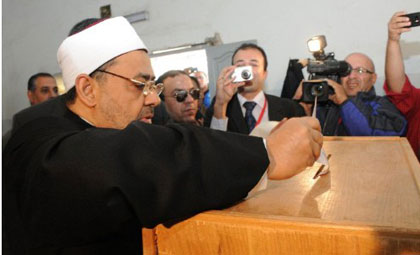The US Special Envoy for the Horn of Africa Jeffrey Feltman commenced a trip to the Horn of Africa and Egypt, on Tuesday, to address political and security issues in the region.
The trip will see Feltman visit Egypt, Eritrea, Ethiopia, and Sudan, to lead a sustained diplomatic effort to address the interlinked political, security, and humanitarian crises in the Horn of Africa.
Feltman will hold meetings with officials from the respective governments, as well as the United Nations (UN) and the African Union (AU). He will also meet with a range of political stakeholders and humanitarian organisations.
The US official’s visit to the region from 4 May-13 May is expected to touch on the ongoing diplomatic crisis between Egypt and Sudan on one side, and Ethiopia on the other, regarding the controversial Ethiopian dam.
Feltman’s trip comes amid a stalemate in the negotiations between the three parties involved in the Grand Ethiopian Renaissance Dam (GERD) issue, namely Egypt, Sudan, and Ethiopia.
Both Egypt and Sudan announced their intention to resort to the UN Security Council to help resolve the issue. The move is aimed at preventing Ethiopia from taking any unilateral actions that may cause harm to the downstream countries.
In the meantime, Eritrean President Isaias Afwerki has arrived in Sudan, on Tuesday, to hold talks with the Sudanese officials related to the Ethiopian dam’s talks.
Meanwhile, Sudan warned Ethiopia that it will recall the Sudanese sovereignty over the Benishangul-Gumuz region, where the dam is located. This will take place if Addis Ababa abandoned the historical agreements between the downstream countries.
Sudan handed over sovereignty of the Benishangul-Gumuz region to Ethiopia in accordance with the 1902 agreement, among other historic agreements that Ethiopia ignored and described as “invalid” and “unfair”.
Responding to the Sudanese warning, Addis Ababa rejected, in a statement on Tuesday, the former’s recent statements on GERD and the Ethiopia-Sudan border issue.
Ethiopia has described those statements as an unwarranted, provocative, and increasingly bellicose propaganda campaign.
The country’s Ministry of Foreign Affairs insisted that “Ethiopia’s historic territories in the west would have been extended beyond what is now Ethiopia’s boundary if it was not for the existing boundary agreements”.
While the two downstream countries call for international mediation to end the GERD dispute, Ethiopia refuses to involve international parties in the talks.



